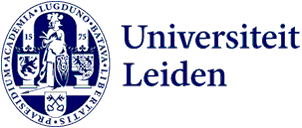
New social media pilot at Archaeology: from Wes Anderson to community archaeology
Anyone who follows the Faculty of Archaeology on social media must have noticed that something changed in September. Videos on research projects, interviews with staff and students, and embracing memes: the content has become more varied and engaging. We speak with students Grace Alonzo and Thomas Prins, who are the driving force behind a pilot that aims to make the Faculty's channels relevant for a wider audience in a changing world.
Full-scale overhaul
What started with an internship focused on outreach with Dr Maikel Kuijpers escalated over the summer into a full-scale overhaul of the social media channels of the Faculty of Archaeology. In meetings with the Communications department, Grace and Thomas got the green light to test their ideas: from life at the Faculty as a Wes Anderson movie to serious pieces on community archaeology.
Three projects
‘We have four months in this pilot,’ Thomas explains, ‘and three projects that we’re highlighting. There is the Darién Profundo project in Panama, the Palloures project on Cyprus, and the Karakorum project in Pakistan. We create content based on their research and boost visitor numbers to their channels and websites.’ The principal investigators of the projects that have been covered are happy with the initiative. Public outreach is an important part of the academic life nowadays, and social media can certainly help reaching new audiences.
‘The goal is to share factual archaeological information with the world in a fun and entertaining fashion,’ Grace adds. ‘Choosing these three projects gave us an organised start, and each project gives us opportunities to talk about wider topics, like collaborative archaeology, for example.’
Interesting stuff
‘We've got so much interesting stuff to share with the world,’ Thomas notes. ‘And while we are good in sharing our insights in articles, lectures, and the media, there is a part of the population that we just do not reach (yet).’ Grace nods: ‘All the information is available, but people need to actively seek it out. The power of social media is that we can deliver them this info in a very convenient fashion.’
Archaeology is a hot topic on social media, but more often than not, it is marred by inconsistencies and oversimplifications. ‘As a Faculty, we are in a unique position to have a lot of data, pictures, and the opportunity to fact check with our colleagues,’ Thomas points out. Grace nods: ‘On top of our own research we double check every single thing we produce, so that we are not saying something that might imply something that is incorrect.’
Pushing every button
And what exactly has the internship brought Grace and Thomas? ‘This project has pushed every button for me,’ Grace says. ‘Everything I like doing and am passionate about. From learning how to create to pitching ideas, as well as collaborating in teams, and storytelling.’ Thomas has a similar experience: ‘My favourite thing is working with the people that feature in our videos. It is my privilige to see their eyes light up when they talk about their projects. It is that excitement that I want to transfer onto video.’ The two actually built their own team. Now they are working together with fellow students Julia Drijver, Isabelle Nouvelot, and Davide Mitrotta.
Ambitions
For Grace and Thomas this is no longer ‘just’ an internship. On the contrary, their plans and ambitions are impressive. ‘We would like to create a space on the internet where people can turn to with questions on archaeology and the past,’ Thomas states enthusiastically. ‘And reach a new level of transparency,’ Grace notes. ‘For prospective students it might be a very cool way to prepare for their study choice. Especially since the pandemic, social media use has increased quite a bit. It is a way to communicate and share all kinds of information. Just no archaeological institution has started doing that effectively yet.’ Except for the Leiden Faculty of Archaeology.
At some point the pilot will come to an end. Armed with the results of their endeavours, a proposal will be presented to the Faculty Board to possibly continue the current strategy.
